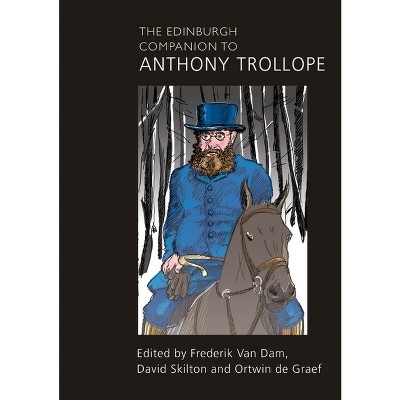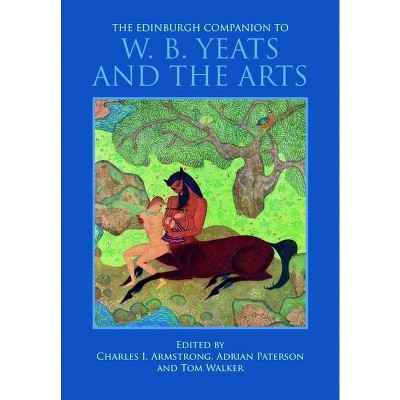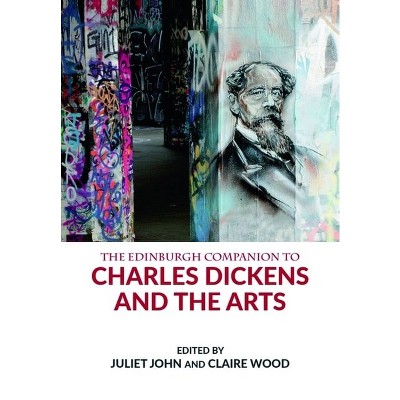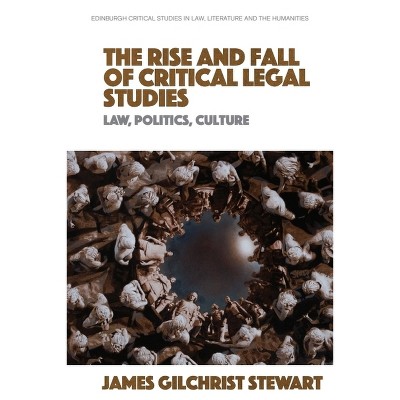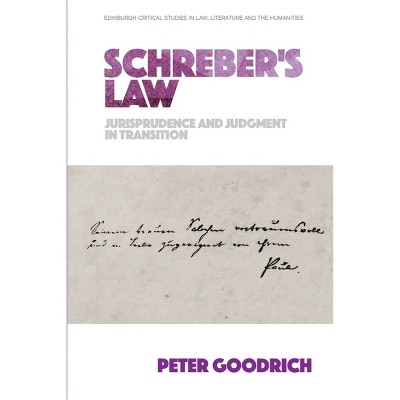Sponsored

The Edinburgh Companion to Globalgothic - (Edinburgh Companions to Literature and the Humanities) by Rebecca Duncan (Hardcover)
In Stock
Sponsored
About this item
Highlights
- The Edinburgh Companion to Globalgothic is the most substantial exploration to date of gothic fiction in the international context.
- About the Author: Rebecca Duncan is Researcher in Literature at the Linnaeus University Centre for Concurrences in Colonial and Postcolonial Studies, where she co-ordinates the "Aesthetics of Empire" Research Cluster.
- 520 Pages
- Literary Criticism, Gothic & Romance
- Series Name: Edinburgh Companions to Literature and the Humanities
Description
About the Book
Substantially reworks accounts of gothic and globalisation, to examine located gothic engagements with global histories and phenomena.
Book Synopsis
The Edinburgh Companion to Globalgothic is the most substantial exploration to date of gothic fiction in the international context. Examining texts from across six continents, the volume considers how gothic imagines, colludes with or interrogates relationships and phenomena that are planetary in scale. Accordingly, chapters address gothic engagements with - among others - resource imperialism, (ongoing) colonial history, diasporic identity, buckling economic unions, the rise of the internet, enthnonationalism, and entangled systems of gendered, racialised and ecocidal power. In this way, the collection moves decisively beyond the framework of globalisation to identify a range of new globalgothic approaches and modes, overall demonstrating that gothic is a key - though sometimes complicit - register for negotiating the challenges and histories of our uneven global present.From the Back Cover
The most substantial exploration to date of gothic fiction in the international context Examining texts from across six continents, The Edinburgh Companion to Globalgothic considers how gothic imagines, colludes with or interrogates relationships and phenomena that are planetary in scale. Accordingly, the thirty-one chapters address gothic engagements with - among others - resource imperialism, (ongoing) colonial history, diasporic identity, buckling economic unions, the rise of the internet, enthnonationalism and entangled systems of gendered, racialised and ecocidal power. In this way, the collection moves decisively beyond the framework of globalisation to identify a range of new globalgothic approaches and modes, overall demonstrating that gothic is a key - though sometimes complicit - register for negotiating the challenges and histories of our uneven global present. Rebecca Duncan is Research Fellow at the Linnaeus University Centre for Concurrences in Colonial and Postcolonial Studies, where she co-ordinates the 'Aesthetics of Empire' Research Cluster.Review Quotes
A powerful, scholarly, and urgently necessary exposition of the necessity to recognise capitalism as always a world-system, attentive to the ways hat globalgothic must be understood in terms of centuries of stratifications of colonial and settler extractivist violence and its legacies. The collection also models brilliant critical methodologies hinging on regional rather than national approaches to the ways Gothic might be meaningful in particular contexts. Panelists noted how this collection has already transformed conversations and thinking within our field.--Sara Wasson "Chair of the International Gothic Association's Justin D. Edwards Book Prize"
To say that Rebecca Duncan's The Edinburgh Companion to Globalgothic is cutting edge doesn't do it justice. It is an astonishing collection that will reconfigure the field of Gothic studies and define its direction for years to come. It is an absolutely essential work.--Jeffrey Andrew Weinstock, Central Michigan University
About the Author
Rebecca Duncan is Researcher in Literature at the Linnaeus University Centre for Concurrences in Colonial and Postcolonial Studies, where she co-ordinates the "Aesthetics of Empire" Research Cluster. She is the editor/co-editor of several collections, including 'Decolonising Gothic, ' a special issue of Gothic Studies (Nov. 2022). Her recent work appears in the journals ARIEL (2020) and Interventions (2020; 2022), and in collections for Palgrave (2021), Bloomsbury (2022) and University of Minnesota Press (2022). Her first monograph, South African Gothic (2018), was shortlisted for the 2019 Allan Lloyd Smith Memorial Prize. Rebecca is recipient of a Riksbankens Jubileumsfond Project Grant (2021-24).
Shipping details
Return details
Trending Poetry






